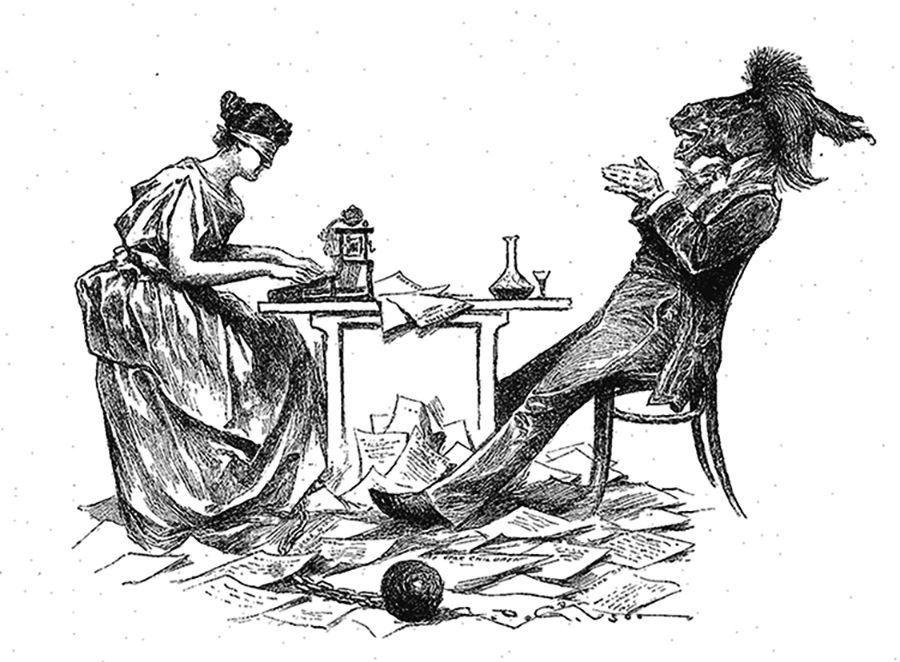An American adult today has, in his ordinary lifetime, virtually spanned ages. His mind and imagination have been confronted with the demand that they make room for five traditional lifetimes’ worth of issues, movements, countermovements, revolutions, consolidations, and counterreactions. His lifestyle—the expression of his sense of social relations, his values, his aspirations—has been assaulted not only by a technology that continually renders itself and the issues it creates obsolete, but by shifts in basic fashion that are, to say the least, unnerving in their rapidity. He sees himself separated by experience and attitude not only, as his modernity has prepared him to be, from his children, but even from those five years younger than himself. He struggles to incorporate a new system of thought which, somewhere, a new vanguard has already set itself up to discredit.
Ideas require not a studied contemplation but an action, even if it is only an inner action. They demand to be stood for. They dictate where a man must concentrate his vision. They determine his moral and intellectual priorities. They provide him with allies and make him enemies. In short, ideas impose an interest in their ultimate fate which goes far beyond the realm of the merely reasonable. This is what accounts for the rabbit-like rate at which new cultural “generations” are produced in the United States. A generation under these conditions represents not a new batch of the young who have come of age, but a new preoccupation which has found its style and its rhetoric. Each succeeding decade has come to an end with its own record of disillusion and bewilderment. Each new decade has begun with its own hinted promise of a revised and corrected, perhaps this time eternal, vision.

Since the early Sixties, the atmosphere in the universities and centers of culture has sharply turned from a new wave of liberal enthusiasm to a storm of reckless, nihilistic, and profoundly despairing radicalism. The desire for a relaxation of American moral fervor against some abstraction called “Communism” has been completely reversed into a powerful moral fervor against some abstraction called “imperialism” or “capitalism” (read: America). The cities that were to provide the centers for America’s new forays into a more graceful and vivacious life now teeter at the edge of destruction as viable political and administrative entities. Another corollary is the view that any and all of America’s domestic difficulties are the result of the ill will of white society. No one of white skin is by one’s own theoretical lights quite innocent. While one might not necessarily wish for the anarchic destruction of our cities, neither does one have the heart to make open quarrel with those who do. The new position of despair proceeds from one axiom: the American system has come to evil; it must in one way or another be undermined at its foundations.
Simple stylishness has played its part in these dizzying shifts of attitude and preoccupation: vogues in thought serve momentarily to brighten the life much like vogues in dress. And how could even the most dedicated intellectual community resist the hunger for the new that stalks American society in general and the insatiable media of mass communication in particular? But whatever the motive behind one’s submission to them, ideas are consequential. Even slogans, whose original purpose—take two leading slogans of the Sixties, “Black Power” and “The War on Poverty”—is only to call people out of some impasse (or solace them while they remain there), can often turn the course of events.
But with all due respect to the trials and frustrations of the Sixties, the response of the intellectual community to those trials and frustrations has been both disastrous in itself and a depressing omen for the future. The Seventies will very likely bring a turning back—a turning back from the value of all social passion as well as from the futility of violence. And may we not expect that the disillusion of tomorrow will become the hard, cold, oppressive philosophy of the day after tomorrow?
From “Anti-Americanism in America,” which appeared in the April 1968 issue of Harper’s Magazine.






















































































